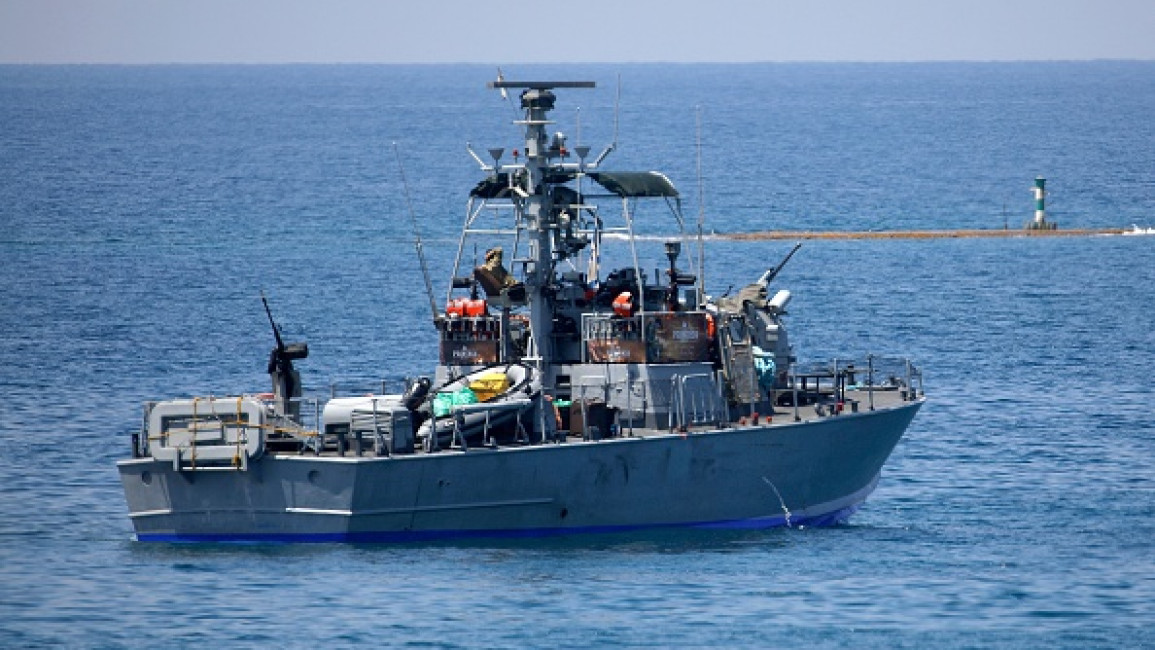Pressure increases on Israel and Lebanon as maritime deal looms
Lebanon and Israel are nearing a deal to demarcate their maritime borders and the potential hydrocarbons which lay beneath, Saudi media reported on Sunday.
The two parties reportedly are pushing for a deal to be signed in the coming weeks, with US Energy Envoy Amos Hochstein to visit Beirut at the end of the week to "follow up on discussions".
"The [US] mediator had a deal on the table back in 2022, and he is supposed to come with more concrete points of what the deal should look like," Laury Haytayan, an expert in energy policy and geopolitics, told The New Arab.
In February, The New Arab revealed that Lebanon and Israel were using a "resource-swap" approach to the negotiations. This contrasted with previous attempts to draw a line in the sea to divide the territory between the two countries.
Instead, the two countries were attempting to preserve the integrity of gas fields first and then divide territory secondly. This would minimise shared resources and limit the necessity of diplomatic cooperation between the two countries in the future.
Lebanon and Israel have been engaged in on and off again negotiations to delineate their maritime borders for over a decade. Negotiations have been complicated by the fact that the two countries are technically at war and do not talk directly with one another.
Though the two countries came close to a deal in 2013, the agreement ultimately fell through after Lebanon pulled out.
"There is the potential for the deal not to come through, but at least on the Lebanese side, the president wants a deal now. But if he feels there is a possibility that this issue can play into the election of the president, maybe he will use it as a bargaining chip," Haytayan said.
At stake is potentially hundreds of billions of dollars’ worth of hydrocarbons – a vital lifeline for Lebanon's economy especially, which is mired in what the World Bank calls "one of the world's worst economic crises" since 1850.
Previous months have seen escalating rhetoric between Israel and Iran-backed Hezbollah. In June, Hezbollah said it would be ready to go to war if Israel attempted to drill in the disputed Karish field. In response, the Israeli Minister of Defense said Israel would be ready to defend its interests and sent warships to Karish.
In late August, the leader of Hezbollah Hassan Nasrallah further said "if the US mediator does not give Lebanon what it asked for in terms of its rights, we are heading towards an escalation."
"Hezbollah raised the stakes to claim credit for any deal and its subsequent impact on the Lebanese economy," Mohaned Hage Ali, a fellow at the Malcolm H. Kerr Carnegie Middle East Center, said to The New Arab.
"In case Israel extracts gas from Karish or any other disputed area, Hezbollah has to retaliate. Their deterrence game with Israel is so dependent on the organization acting on its promises and threats," Ali said.
Israel is also facing pressure to finalize the maritime deal, as Energean – the Energy conglomerate meant to extract gas from Karish – is meant to have the gas flowing by September. Energean has already delayed extraction twice and faces a looming debt repayment plan.
Lebanon's own prospects for extracting gas also hit a road bump earlier last week, when Novotec – a Russian energy giant – pulled out of the consortium which holds the rights to two gas blocks, including disputed Block 9.
Novotec reportedly plans to exit the consortium by October 22nd and sell its 20 per cent stake in the project. Both Total and ENI are still maintaining their stakes in the consortium.
Lebanon badly needs the funds that could come from hydrocarbon extraction, not to mention its own extreme energy deficit. However, it will take up to eight years for Lebanon to see any profit from the project.
According to Haytayan, a maritime deal could pave the way toward revitalizing Lebanon's oil and gas sector.
"Lebanon wants to call a win by saying 'Yes, we did the demarcation and now we're launching our oil and gas sector,'" she added.



![Squad incumbent Summer Lee has won her district's Democratic primary. [Brooke Anderson/The New Arab]](/sites/default/files/styles/image_330x185/public/2024-04/413898031_1041031157158522_8195934720767720634_n%20%283%29.jpg?h=ff8c3fa3&itok=75Sx6fbL)